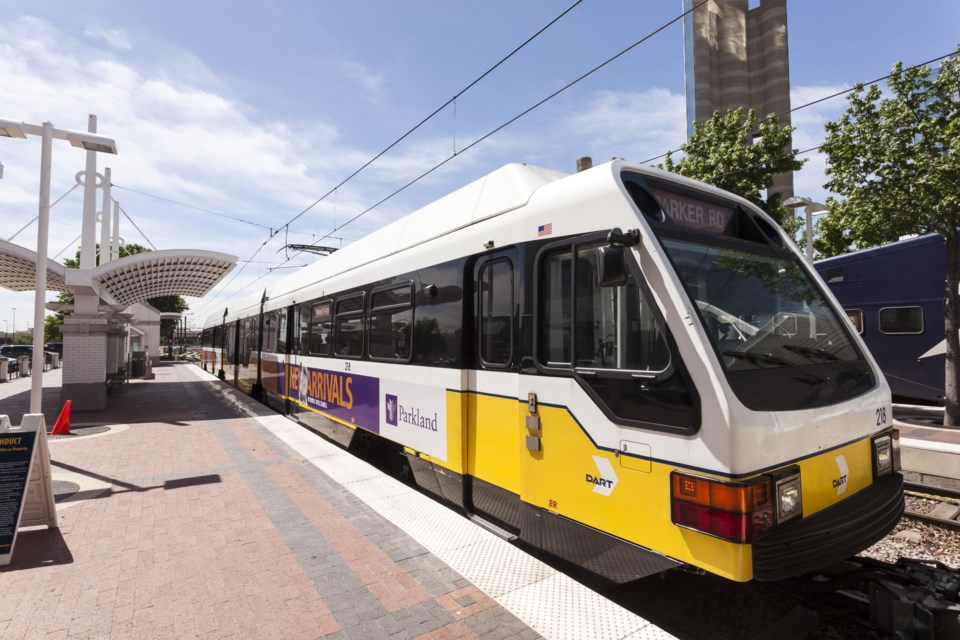City councils in Carrollton and Farmers Branch voted to reduce Dallas Area Rapid Transit’s (DART) funding, joining three other North Texas cities.
Currently, every dollar spent in member cities is taxed at 1% to help fund the transit system, a practice in place since 1983. However, the Carrollton and Farmers Branch approved resolutions to support capping DART contributions at three-quarters of a cent per dollar. If Farmers Branch capped its DART contributions at three-quarters of a cent, it could save $5–$6 million annually.
These resolutions are symbolic in nature, as only the DART board can vote on reducing funding for the transit system.
Farmers Branch annually contributes $22–$23 million, with DART’s estimated revenue for 2024 projected at $870.8 million. City staff cited concerns about the transit system’s reliability, quality, fiscal responsibility, cleanliness and safety — concerns that were mirrored by neighboring cities.
The cities join Plano, Rowlett and Irving, all of which passed similar resolutions this year. In June, Plano City Council unanimously approved a resolution to support a quarter-cent reduction in the sales and use tax allocated to DART, amounting to approximately $30 million annually.
"The city of Plano does not have the authority to unilaterally reduce this tax rate exclusively for Plano," DART previously told Local Profile. "Any action by the 15-member DART board would impact all service area cities. Any reduction in the voter-approved 1% use tax that funds Dallas Area Rapid Transit would have devastating effects on the most vulnerable populations in all cities that rely on DART to access jobs, health care, education and more."
The resolution proposes capping all sales and use tax collections by the agency at $870.8 million, the projected amount for the 2023-24 fiscal year. Plano currently contributes $115 million in sales and use taxes to DART based on the required one-cent contribution. Additionally, the city is advocating for greater transparency regarding DART's spending and the benefits provided to member cities.
Lowering the sales tax contribution requires approval from both the DART board and voters. If the board approves the reduction, an election will be held in the transit authority’s 13 member cities. Voters will then decide on the reallocation of the quarter-cent reduction from the sales tax contribution to DART, with the possibility of reallocating the funds back to the transit authority.
Don't miss anything Local. Sign up for our free newsletter.




